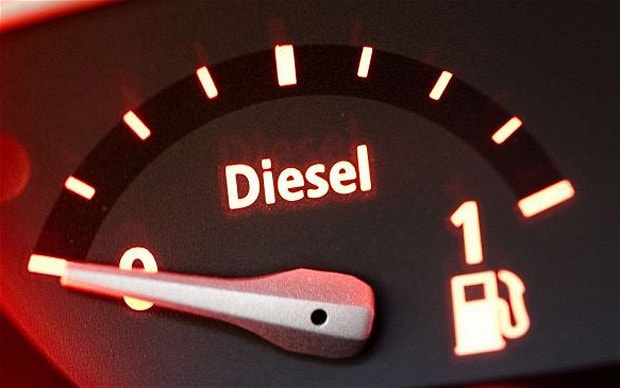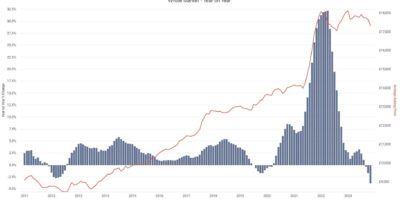According to the latest results from the Auto Trader Retail Price Index, the average price of a used car was £11,819 in 2017; which on a like-for-like basis (stripping out the impact of changes in the mix of cars being sold[1]) equates to a 4% increase on 2016. Despite the significant drop in new diesel car registrations last year (-17%[2]), the value of used diesels recorded an average price of £13,944 in 2017, an annual like-for-like price growth of 2% for the year as a whole. The average price of a petrol car was £9,471, representing an increase of 7% on a like-for-like basis for the year.
The Auto Trader Retail Price Index combines and analyses data from c. 500,000 trade used car listings every day, as well as additional dealer forecourt and website data (OEM, fleet and leasing disposal prices, in addition to pricing data from over 3,000 car dealership websites and data from major auction houses across the UK), ensuring the Index is an accurate reflection of the live retail market.
Used prices stabilise in December
Following a -£50 month-on-month dip in November, 2017 ended on a positive note, with the average price of a used car increasing £194/1.5% in December to £12,783. On an annual like-for-like basis prices were up 6% on December 2016.
When analysing average retail prices by fuel type, diesel prices recorded a drop of -£143 between October and November. However, prices stabilised in December, increasing £71 on the previous month, with an average of £14,483. This represents a 3% like-for-like increase on December 2016.
Prices of used petrol cars have continued to outperform diesel in 2017. Between November and December, prices increased £283, to an average of £10,625. On a like-for-like basis, prices of used petrol cars have grown 11% between December 2016 and December 2017.
Commenting on the findings, Karolina Edwards-Smajda, Auto Trader’s Retailer and Consumer Product Director, said: “It’s extremely heartening to see that despite the ongoing economic uncertainty surrounding Brexit and the negative tone of the fuel debate, used diesel prices are retaining their value. The Government’s demonisation of diesel really isn’t helping to build consumer confidence, and nor is it justified as many modern Euro 6 engines are less harmful than their petrol equivalents. Diesels remain an excellent option for many motorists, particularly those that drive long distances and are looking for the efficiency only a diesel can offer.â€
Negative commentary impacting diesel searches
Auto Trader’s marketplace attracts 55 million cross platform visits a month, and as such provides a useful barometer for consumer purchasing intentions.
On average, 22% of all searches that take place on Auto Trader each month are based on fuel type. In November 2016, 71% of car buyers selecting a fuel type when searching on Auto Trader chose diesel. However, this fell during 2017 in-line with anti-diesel rhetoric, dropping to an annual low of 54% in December 2017. Comparing the total volume of diesel searches across the year, the number of searches for diesels on Auto Trader fell -27% between 2016 and 2017.
Looking at the share of searches for petrol over the same period, in November 2016 petrol accounted for 26% of all fuel related searches on Auto Trader. As the share of searches for diesel fell during 2017, petrol increased, reaching a high of 43% in May 2017. The figure has since declined slightly, accounting for 41% of all fuel related searches in December 2017. Annually, the total volume of searches for petrol grew 28% between 2016 to 2017.
2017 saw significant movement in the share of fuel related searches for alternatively fuelled vehicles (electric, hybrid, bi fuel, LPG and petrol ethanol) on Auto Trader. At the beginning of the year, alternatively fuelled vehicles accounted for less than 3% of all fuel related searches, however in December 2017, the figure reached over 4%. Annually, between 2016 and 2017, this equated to a 65% increase in volume of searches for AFVs, with electric alone recording a huge jump of 84% in searches.
Karolina continued: “It’s clear that the Government’s widely publicised anti-diesel rhetoric has dramatically affected consumer purchasing intentions in 2017. It is however hugely positive to see such a significant spike in AFVs, which highlights an exciting opportunity for retailers in 2018. During the months ahead, the market would greatly benefit from the Government changing the focus of the fuel debate to be less anti diesel and more pro electric.â€








